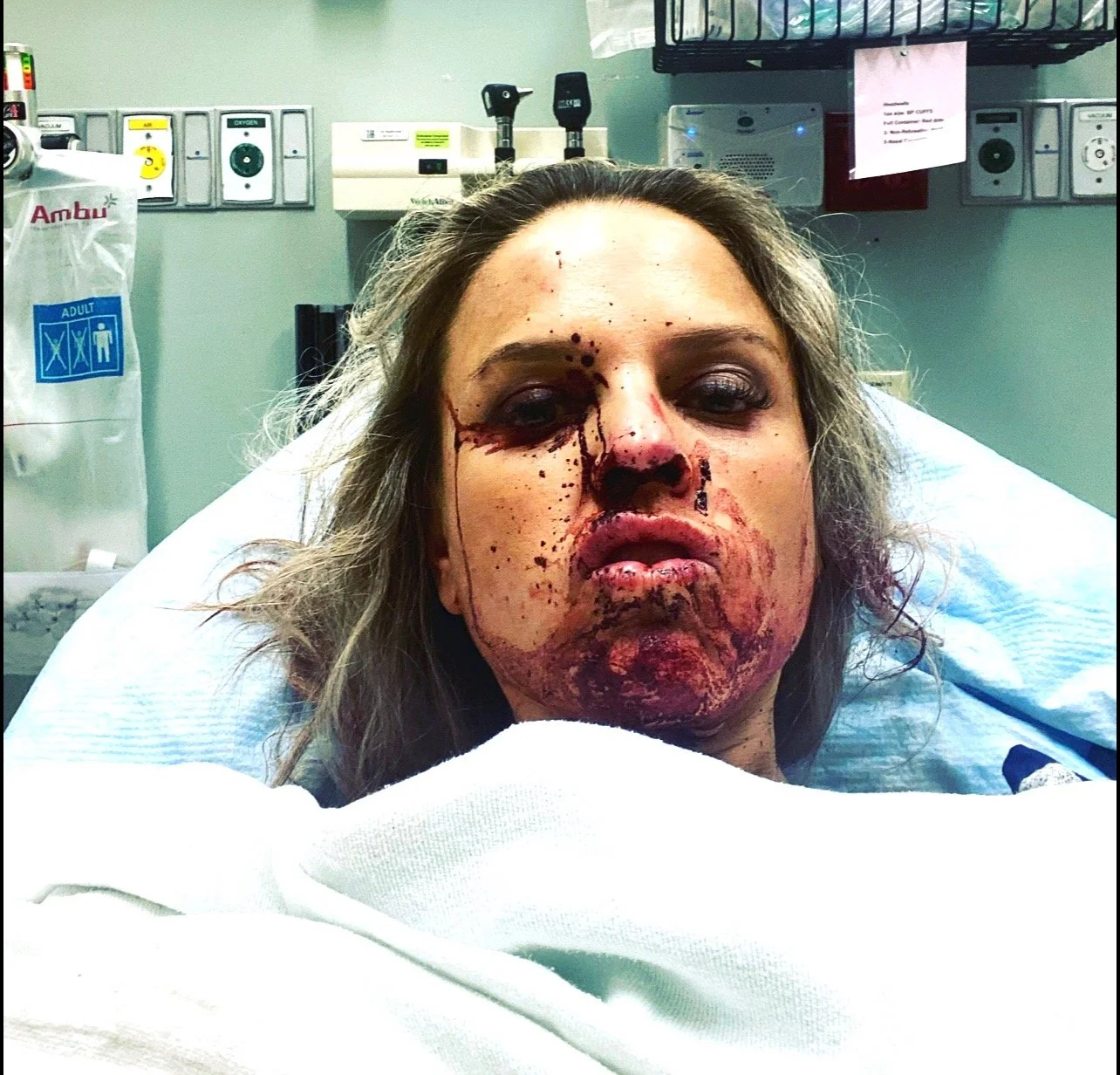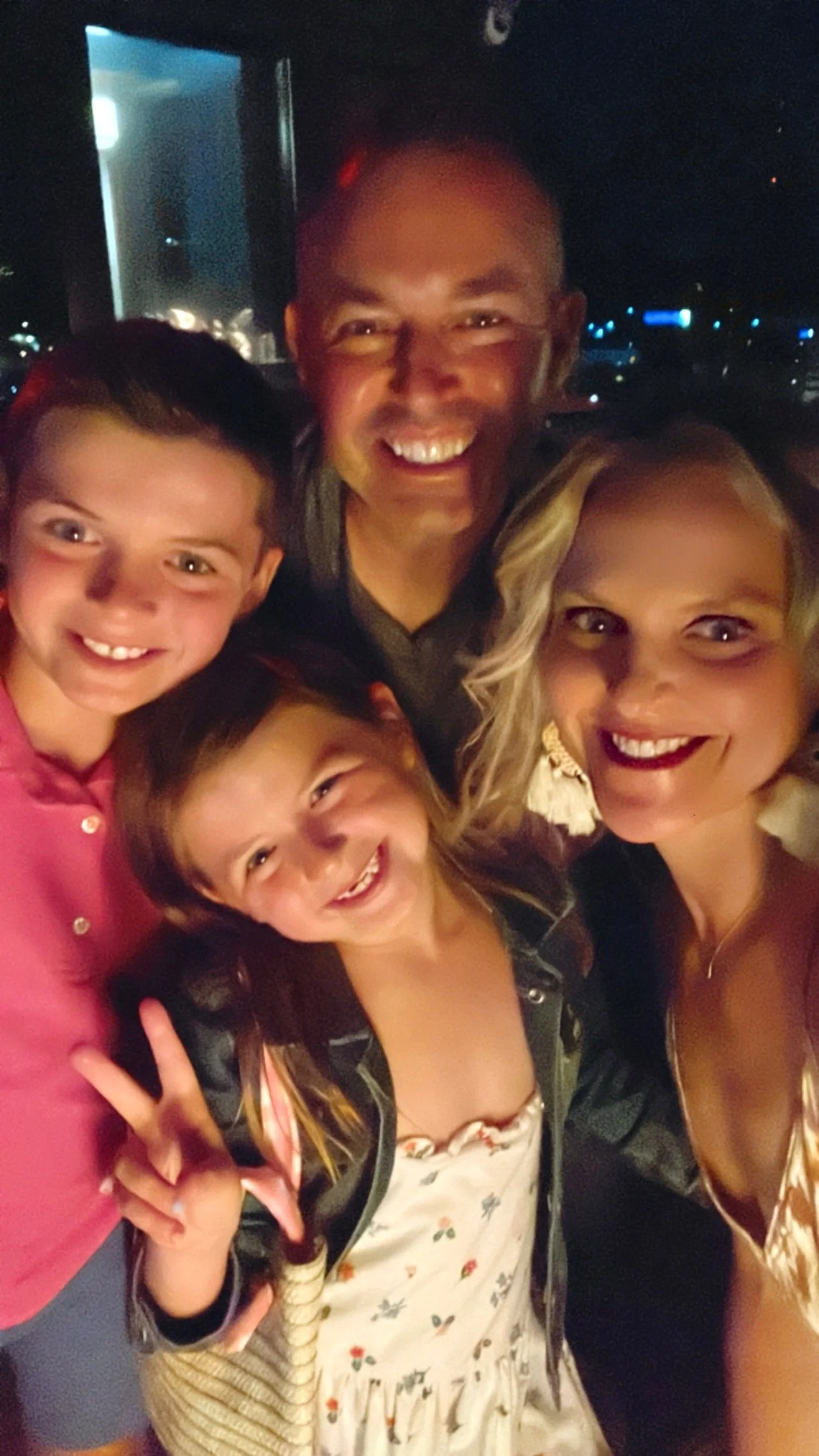Audacious Resilience
In the space between victim and victor lies a battlefield few willingly enter. For Erika, this sacred ground became the forge where her spirit was tempered, where ordinary steel was transformed into something extraordinary. Her story is more than survival; it’s a testament to how the most violent collisions in life often create the most significant revelations.
The morning had been unremarkable. Erika, dressed in her favorite pink blazer with matching shoes, had dropped her children with the sitter. Her husband was away on business travel. She pulled into her usual parking spot at work, took one final sip of her signature lemon water with pink Himalayan salt, and opened her car door. It was Tuesday, June 16, 2022—a date that would soon become a dividing line in her life.
"Sir, can I help you?" These five innocent words escaped her lips just before two hundred and ten pounds of rage tore her from her vehicle by her hair.
Time slowed as trauma often does, stretching seconds into eternities. In these hyper-vivid moments, Erika's consciousness registered every excruciating detail with crystalline clarity—the weight of her attacker's body, the scent of his sweat mingling with her perfume, the scrape of asphalt against her palms as she fell. The mundane Tuesday morning had shattered, replaced by a reality where the line between life and death suddenly became paper-thin.
The first punch landed with shocking force against her cheekbone as she instinctively tried to turn away. Pain exploded across her face, a violent awakening that sent primal fear coursing through her veins. The pink blazer she had chosen with such care that morning—a symbol of her professional identity and ordered world—was now stained with the first drops of her blood.
The second blow came as she attempted to crawl to safety, her nails scraping desperately against the concrete. Her body, which had faithfully carried her through countless morning jogs and busy days juggling career and motherhood, now seemed fragile. With each impact of fist against flesh, Erika wasn't just fighting a stranger—she was confronting the illusion that comfort zones offer protection, that routines provide immunity from chaos, that the world follows predictable rules.
Blood from her split lip sprayed with each labored breath. Erika tried desperately to communicate her humanity to her attacker, to transform herself from object to person in his eyes. Blood, tears, and saliva mingled on her face, creating rivulets that traced the contours of her features—features that would soon be unrecognizable in the hospital photographs.
Her attacker's face remained emotionless, unmoved. Then his hands, calloused and powerful, found her throat. His fingers pressed into the delicate structures beneath her skin—vessels and passages essential for life, now compressed under his determined grip.
As he began choking her, Erika's world contracted to a single, desperate imperative: breath. Each failed attempt to draw air created a new kind of panic, more so than anything she had ever known. Her body betrayed her with its involuntary responses—the bucking, the clawing, the silent screams that could find no voice without air to carry them. Her vision began to tunnel, darkness creeping in from the periphery, while pinpricks of light danced across what remained of her sight.
As darkness enveloped her consciousness, Erika had no concept that this moment of utter helplessness would become the crucible for her transformation. She couldn't have known that the hands intent on destroying her would become the hands that molded her into something stronger, more purposeful, more powerful than she had ever been before. In that company parking lot, as her grip on consciousness loosened, the woman who entered would cease to exist—not because her attacker succeeded, but because surviving would require her to become someone entirely new.
When light suddenly glared back into her eyes, instinct took command. The avid runner found herself in the most important race of her life. Each grip of the pavement as she crawled, each painful step as she finally stood and ran, was a declaration that this stranger would not determine her story's end.
Despite the dizziness and pain, she struggled to her feet and ran toward her office building—heels still on, each step a defiant choice to survive. The building offered no cameras or security badges, only the hope that someone might hear her. As she burst through the entrance, she released a scream so raw and powerful that it cut through the ordinary business day like a siren. The sound tore from her bruised throat and traveled upward, reaching Vice Presidents on the second floor. That desperate cry for help—the sound of a woman refusing to become a statistic—would later transform into the voice that would demand justice for herself and countless others.
The aftermath unfolded in a blur of hospital rooms, police statements, and news reports. There were moments when surrender to victimhood beckoned seductively. But then she would hear them—the distant echoes of her children's laughter from the backyard, reminders of what was truly worth fighting for. And in those sounds, Erika found her pivotal question: Would she let this moment define her or refine her?
What began in a parking lot as an act of violence has transformed into a movement of empowerment. In the years following her attack, Erika refused to remain silent, instead channeling her trauma into purpose by reaching thousands of women trapped in the shadows of their own assaults.
"Audacious resilience" became her rallying cry—not just a phrase but a philosophy that acknowledges pain while refusing to be defined by it. Under Erika's inspiration, women who had previously diminished themselves began standing taller, speaking louder, and recognizing the strength that had always existed within them.
Her advocacy transformed when the legal aftermath revealed a stunning injustice: her attacker's violence—the hands that crushed her throat until blackness claimed her—was classified merely as a second-degree misdemeanor. Had those same hands belonged to a spouse or family member, the crime would have been a second-degree felony. This arbitrary distinction ignited something new within Erika, alchemizing her pain into purpose. No longer was she simply a survivor seeking personal healing; she became a warrior demanding systemic change, her voice carrying the weight of every woman who had ever gasped for breath under similar circumstances.
The proposed legislation now known as "Erika's Law" stands poised to reshape Pennsylvania's legal landscape, elevating all acts of strangulation to a second-degree felony regardless of the relationship between victim and perpetrator. By recognizing strangulation as equally deadly in all contexts, this legislation acknowledges both medical reality and human dignity.
What began with those five fateful words—"Sir, can I help you?"—has evolved into a powerful legacy that honors what Erika came to understand in the depths of her recovery: "He didn't do this to me. He did it for me." The violence meant to silence her instead gave her a platform, an opportunity, and the mindset to recognize her own resilience and share that gift with countless others.
Through Erika's example, thousands of women have found permission to reframe their own narratives—to see themselves not as permanent victims but as survivors capable of extraordinary impact. Her story reminds us all that sometimes our deepest obstacles arrive to reveal our purpose to serve and help others who need the strength we carry.






